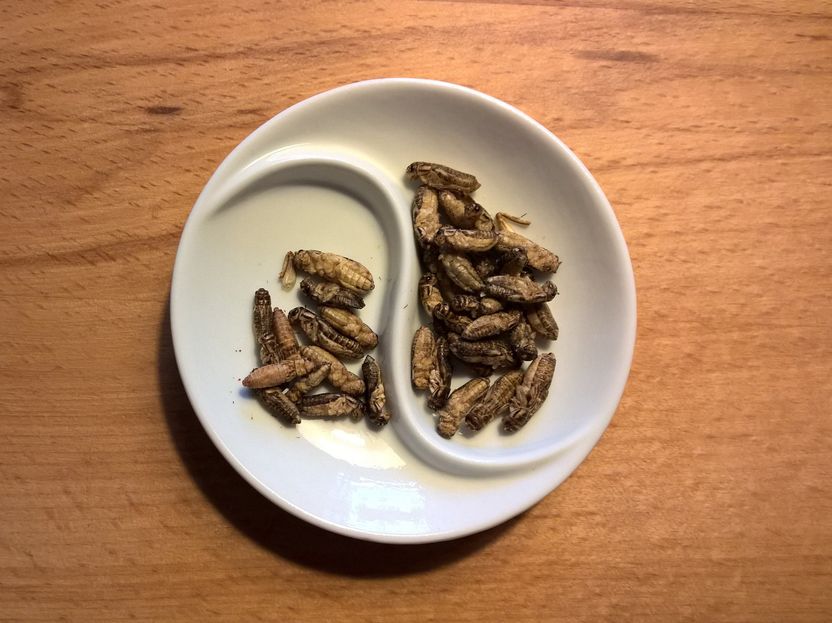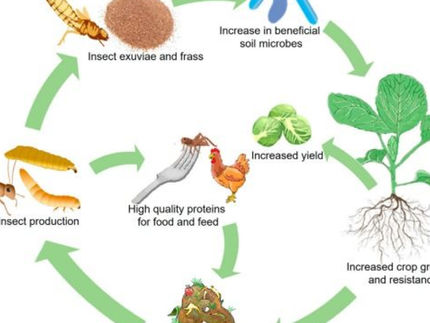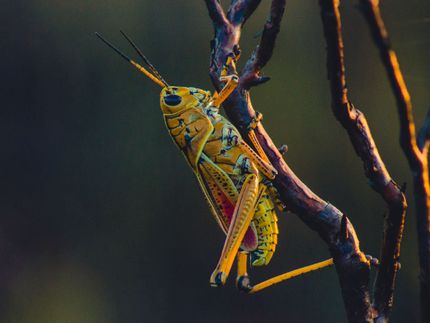Insects love factory farming
Advertisement
Will Food insects Be The New Sushi? The disgust of crickets and maggots can be overcome, says one expert. Similar to the scepticism of raw fish. But there are other critical factors.

pixabay/ChristophMeinersmann
Insect dishes could help to supply more people on earth with high-quality protein. That is why nutrition researcher Professor Guido Ritter is campaigning for us in Europe to adapt and eat crickets and mealworms. He has supported young company founders who have launched a protein powder for insect athletes. In an interview with the German Press Agency, however, he warns against possible risks in the mass breeding of eating insects, despite all optimism.
Question: Mr Ritter, as an insect expert, how often do you eat such animals yourself?
Answer: From a scientific point of view, I often go for it: everything we produce here is tasted. This is part of the daily work. I also try to include insects in my diet once or twice a month. This has to do with eating culture and enjoyment. I'll enrich stews with it. Or eat snack products out of them. Another option is to deep-fry or fry insects and serve with dip. At the moment it is still difficult to get the raw materials.
Question: With us many people do not like insects, the disgust factor is big. Can this be overcome?
Answer: Yes, but that takes time. This is not a genetic disgust factor, it is socio-cultural. When the mother says, "Yuck, you mustn't put that in your mouth, then the child learns that it's taboo. Insects are often associated with something unclean. They have never played a major role in our diet. mammals that we breed in huge numbers today. I believe that the rejection can be overcome. It's a thing you can learn over a generation.
Question: So you think it takes about 25 years?
Answer: We see this in other nutritional areas, such as raw fish and sushi. This raw fish was introduced to the German market in the 1980s. At that time cold fish with cold rice was still disgusting for many people. Sushi can now be found in almost every supermarket. But that doesn't mean we eat sushi every day. It doesn't mean that everyone loves sushi these days. But it has become a piece of normality. It will be similar with insect products.
Question: How does a learning process work during a meal?
Answer: I now expect a phase where the tingling factor of trying something new still plays a role. A number of products are launched on the market that are important in terms of innovation and short-term attention. Then there will be a bit of disillusionment, because one notices: "Oops, it's not that spectacular. And if the price is then acceptable and the sources are safe, the long-term trend is towards normality. Insects - especially in processed form - will then be introduced piece by piece into our food products.
Question: What other hurdles do you see?
Answer: Everything must be declared properly. Allergen labelling must also be done properly, as people with a shellfish allergy are also likely to be allergic to insects. The raw materials are still expensive.
Question: Because the quantities are still too small?
Answer: As far as mammalian factory farming is concerned, we have decades of experience. This has been consistently made more efficient. In the case of insects, the sources of raw material production must first be built up in order to reach a price range that is acceptable to the mass market. It will also take several more years to ensure the security of raw materials, as with other animal sources.
Question: In Holland, for example, there is production. Also in Asia. Do you think that in future breeding will take place more in Europe or in other regions of the world?
Answer: I get requests from farmers who want to get out of the system to breed cows, pigs or chickens of this species. Because of the increasing discussion about mammals in factory farming. These farmers are looking for alternatives. I believe that even larger insect production facilities will be built in Europe. Insects love factory farming, they only feel cuddly warm when they move together. This makes breeding in large quantities somewhat less problematic from an ethical point of view.
Question: And how do you see the quality of the products?
Answer: We have learned from the BSE crisis: what we feed to animals ends up on our plates. In non-European countries, whether this is South Africa or Thailand, there is also a culturally determined idea that high-quality proteins could be produced from waste as insect food. I take a very critical view of this approach. You have to look at the food, and not just that. The entire production process should be hygienically sound and quality-tested. The requirements of the European Commission, including the Novel Food Regulation, are very clear and strict. (dpa)
___________________
The person:
Professor Guido Ritter (53) is a nutritional scientist at Münster University of Applied Sciences. His focus is on food waste prevention and product development. He supported a start-up company that launched a protein powder for athletes based on buffalo worms.





























































